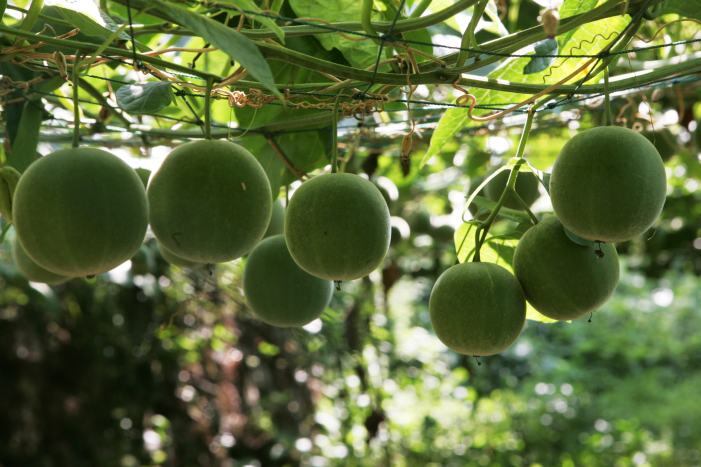Speaking to analysts on the firm’s Q4 earnings call, chief executive Indra Nooyi said: “So what’s our approach in colas? Simply put, we’d like to lead disruptive innovation. The industry has not had truly meaningful innovation in colas since the introduction of Diet in 1960s.
“Our research indicates that consumers still love bubbles. They love the cola taste, but would like to lower their caloric intake without the taste of artificial sweeteners. So… we’ve been developing new natural sweeteners and flavoring aimed at reducing calories with no compromise on taste.”
We'd like to lead disruptive innovation
She added: “We have some promising projects that are currently going through the FDA review process that once commercialized could potentially alter the trajectory of our Cola business in a meaningful way.”
Asked by an analysts on the call how close they are to commercialization, she said: “We’re just waiting for the FDA approval and that’s not in our hands. It’s in the government’s hands. Once we get the FDA approval we’ll be launching."
The PepsiCo press office subsequently clarified her comments, however, telling FoodNavigator-USA: "While the preparation work for the review and commercialization process is underway, potential innovation has not been submitted to the FDA.
"Once the preparation work has been successfully completed, submission will be made to the appropriate reviewing body."
Beyond stevia and monk fruit? Brazzein and monatin
But what's the sweetener in question?
Nooyi did not reveal which sweetener or flavor enhancer Pepsi is exploring, or whether it is doing so alone or in partnership with another firm such as Senomyx, with whom Pepsi has been working on a taste modifier called S617 that enhances the sweetness of sugar and high fructose corn syrup (HFCS).
While PepsiCo uses natural sweetener stevia in its Pepsi Next mid-calorie product in Australia (although not the US, where it is sweetened with HFCS, aspartame, Ace K and sucralose), its flagship Diet Pepsi product is sweetened with artificial sweeteners aspartame and ace K.
And while monk fruit extract - the other major natural high intensity sweetener available to formulators - has been gaining ground in recent months, it has not been used in any major cola launches - yet.
Meanwhile, other natural high intensity sweeteners such as brazzein (a protein derived from the berry of West African plant Pentadiplandra brazzeana Baillon) and monatin (an extract from the South African plant Sclerochiton ilicifolius) are still awaiting regulatory approval in the US.
However, the entrepreneur behind Cweet - a natural sweetener from brazzein - recently told this publication that he hopes to secure regulatory approval to sell it in the US in one to two years.
Senomyx is screening plant-derived samples in an effort to discover novel natural high-potency sweeteners
Tate & Lyle, which markets monk fruit-based sweetener Purefruit, has made no secret of its desire to find other natural high-potency sweeteners and plant-based masking agents and sweetness enhancers, while Cargill is also looking at the potential of monatin.
San Diego-based flavors innovator Senomyx is also trying to identify novel natural sweeteners.
Speaking to FoodNavigator-USA last year, corporate communications VP Gwen Rosenberg said the firm had identified a natural compound that provided a sweet taste that served as "an important taste proof of concept to validate Senomyx's approach”, although she would not say how much sweeter it was than sucrose.
She added: “Senomyx is using our proprietary technologies to screen plant-derived samples in an effort to discover novel natural high-potency sweeteners. This involves building a targeted natural-source library and using the company’s proprietary technologies to identify potential new natural sweeteners and sweet flavor ingredients.”
Givaudan on stevia: ‘Stevia still brings noticeable off-tastes compared to sugar, depending on the blend’

But what's wrong with stevia?
Nothing, according to flavor giant Givaudan. But firms like to have options, and formulation challenges remain.
Although the latest blends of steviol glycosides do not have the same bitter off-notes associated with some earlier stevia extracts on the market, some still contain “noticeable off-tastes compared to sugar”, Janine van Kampen, global product manager, told us last fall.
“Most of the new stevia blends combine different steviol glycoside components to modify these bitter, licorice and lingering off-notes. Although many of these do show improved quality compared to the first Rebaudioside A extracts, there are still noticeable off-tastes compared to sugar, depending on the blend."
The temporal sweetness of monatin et al is very different compared to sugar
As for monk fruit, she said: “Luo han guo gives a nice round sweetness and not the same level of bitterness as stevia. However it gives a strong fermented, fruity character that will be perceived as an off-taste in many applications. Characterizing flavors can help balance these notes."
Asked about other natural high-intensity natural sweeteners such as monatin, osladin, brazzein, thaumatin and monellin, she said: “We found them to be very sweet, but the temporal sweetness is very different compared to sugar.”
PepsiCo: ‘Only a fifth of our North American beverage volume is full-sugar cola’

PepsiCo, which launched ‘natural energy’ drink Mountain Dew Kickstart earlier this week, now generates almost 40% of its beverage volumes in North America from non-carbonated products such as waters and juices, while “only a fifth of our North American beverage volume is full sugar Cola”, revealed Nooyi.
“Colas have been under pressure for some time now.”
However, mid-calorie cola Pepsi Next, which contains 60% fewer calories than regular Pepsi, generated an impressive $100m in retail sales in its first year on the market, she revealed.
Q4 highlights
In the fourth quarter of 2012 (three months to Dec 29), PepsiCo posted earnings of $1.66bn, or $1.06 per share vs $1.42bn, or 89 cents per share, a year ago, ahead of analysts’ expectations.
Revenue dipped 1% to $20bn, impacted by the stronger dollar and an extra week in last year’s quarter, but still beat Wall Street’s estimate of $19.8bn.
